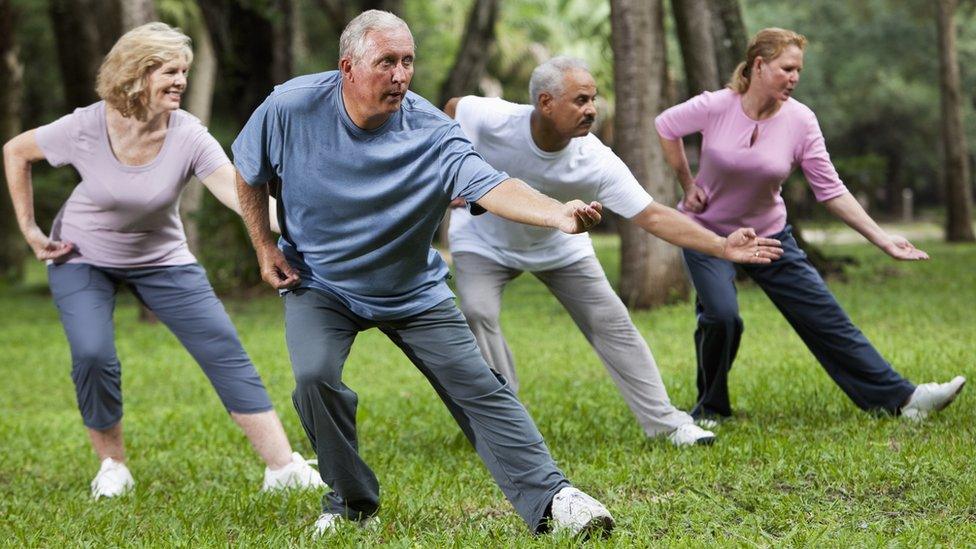'Arthritis, a stroke and PTSD - Tai Chi and martial arts help me deal with it all'
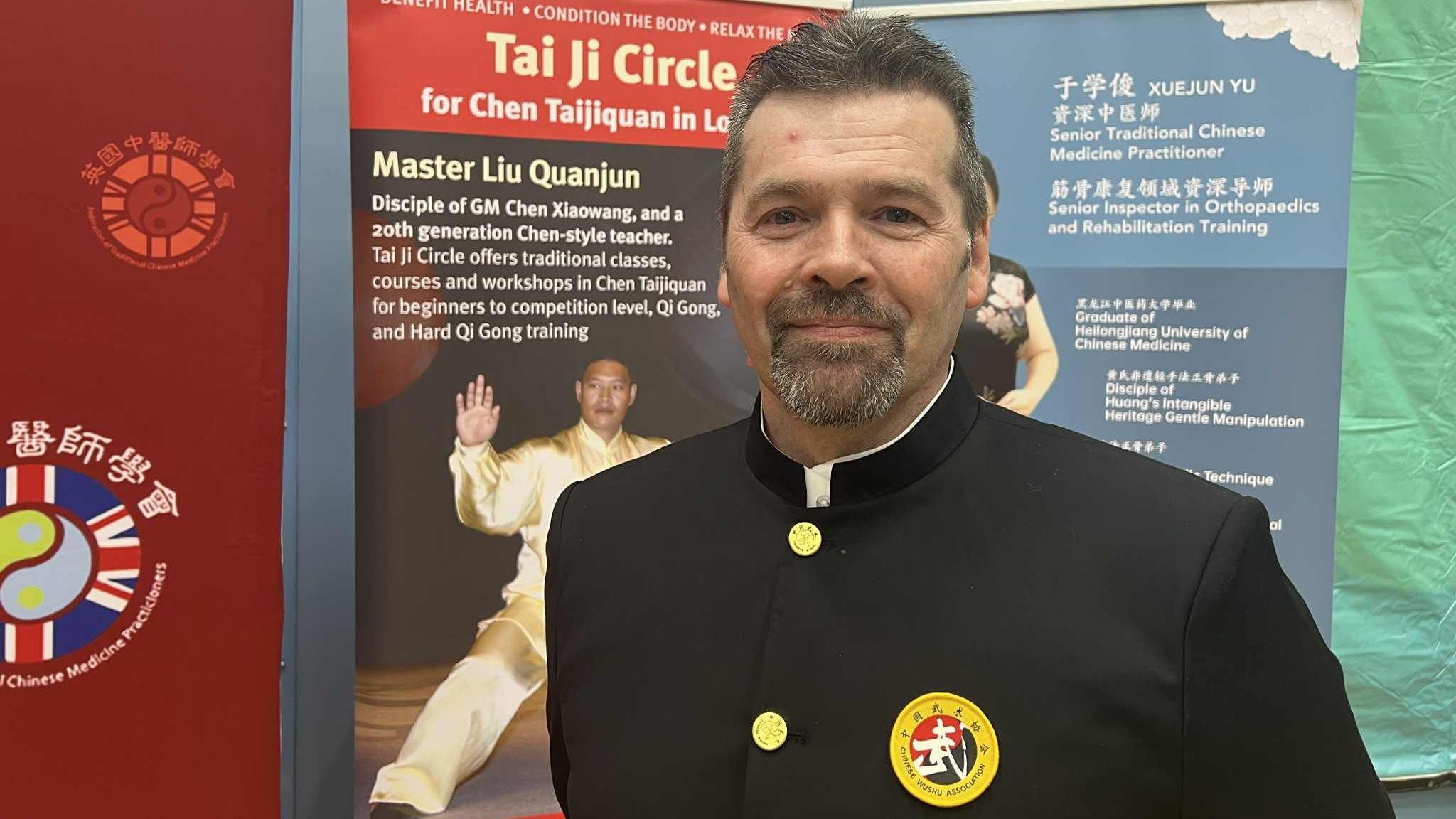
Richard Brown, the secretary of Irish Wushu Association, said Tai Chi and martial arts helped him overcome PTSD from the Troubles
- Published
In a sparse Belfast sports hall, the sounds of a gently plucked harp are echoing off the high walls as onlookers watch a group of a dozen or so people.
At first glance, it's like they're moving in perfectly co-ordinated slow motion - they raise and lower both arms with exacting grace. Their legs extend, bend at the knees, as they turn to the left and right, together, in unhurried choreography.
This is Tai Chi, a Chinese martial art, and this demonstration is part of Ireland's first Chinese Traditional Cultural Exchange Festival, which ends on Sunday.
The event brings together Chinese and local communities for a showcase of Chinese cultural practices, traditional therapies and Wushu (martial arts) competitions - and it's the latter that one man credits for helping him through serious mental health challenges.
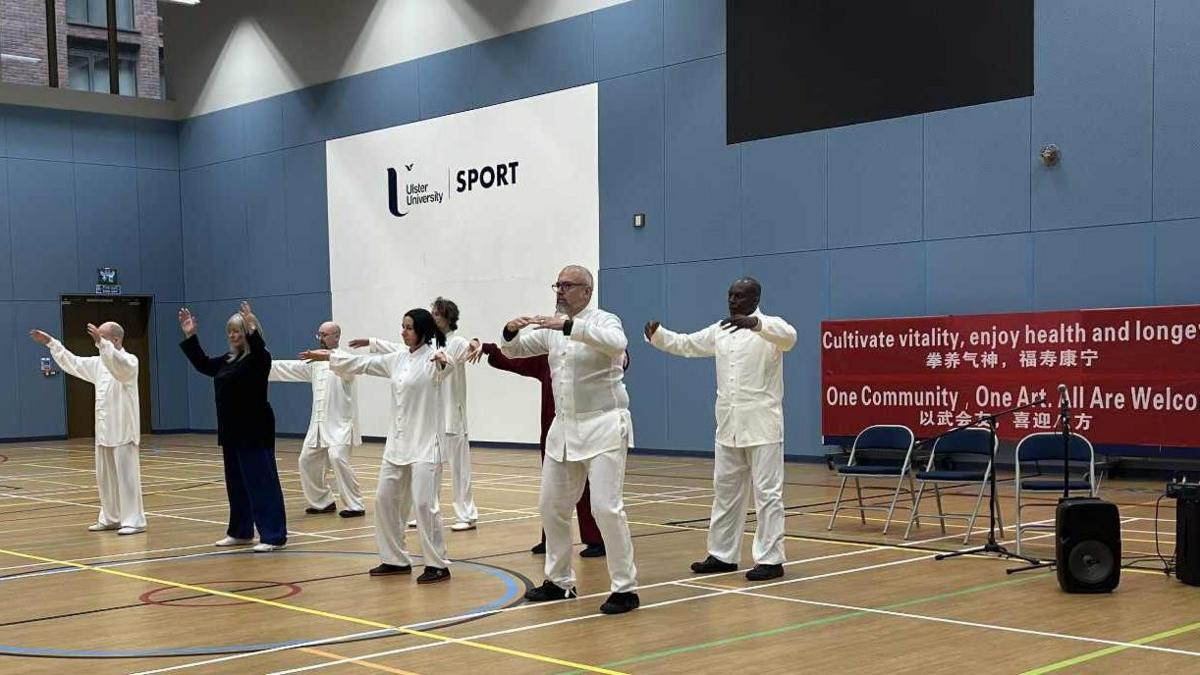
Tai Chi being demonstrated at Ulster University Sport Centre
Richard Brown, secretary of the Irish Wushu Association, said he has dealt with issues including arthritis, a stroke and various other mental and physical health struggles over the years.
"As somebody who went through the Troubles, I have PTSD, so Tai Chi in particular helped me to overcome those difficulties and to manage them, so it is a very practical way to relax and improve my mental health" he said.
Mr Brown began practicing martial arts at a young age to protect himself while growing up in Northern Ireland.
He said he has gained a deeper understanding of the "health and wellbeing side of things" while exploring various aspects of martial arts and Chinese culture.
Martial arts are becoming increasingly popular, he said, adding that he has been contributing to the organisation of the festival, which began on Thursday and is designed to promote Chinese health and wellness practices.
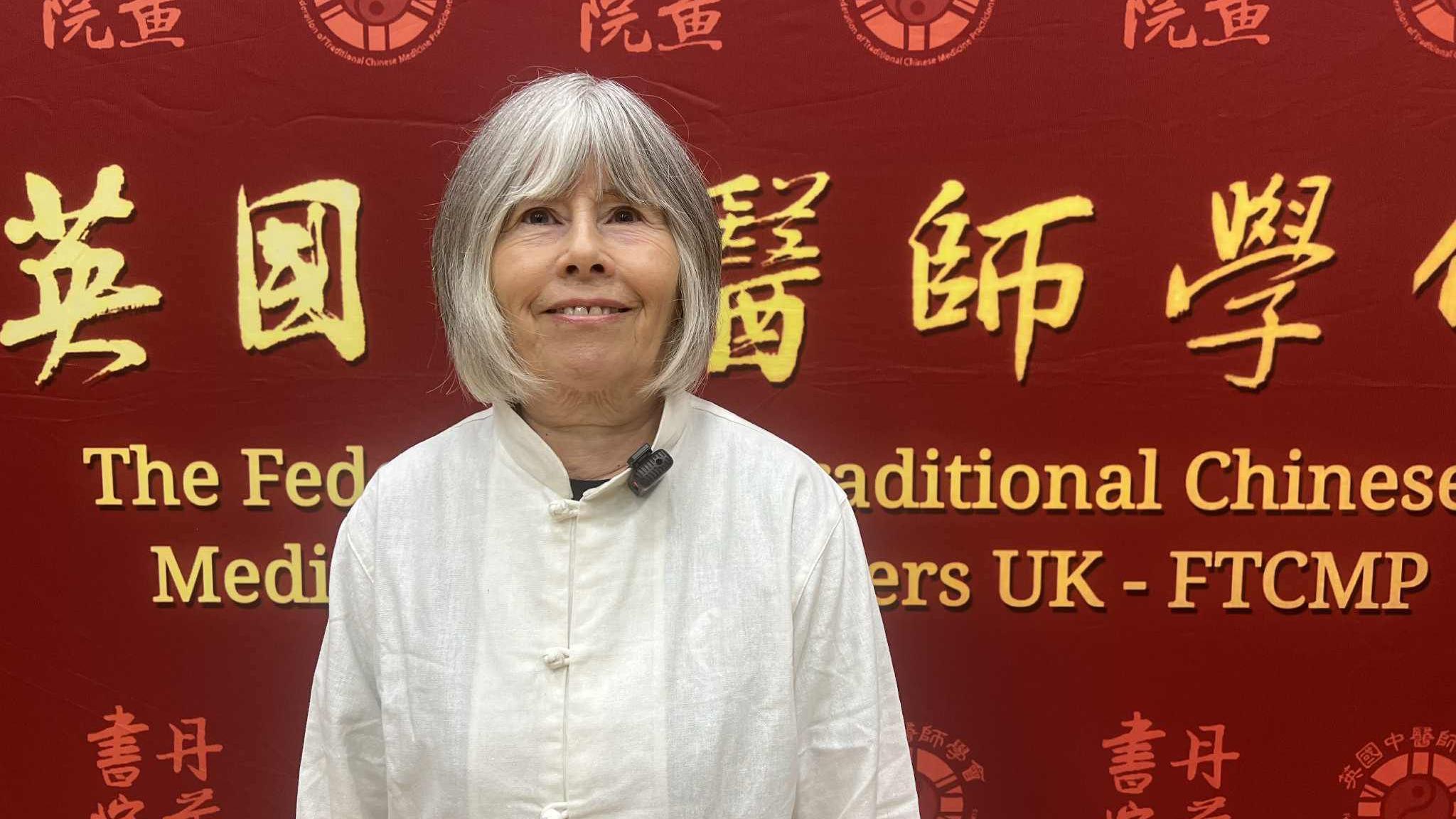
Dee Kerr has been taking part in Tai Chi classes for over 20 years
Dee Kerr, a member of Zhu Chang Hai International Wushu Association (ZCHIWA), said Tai Chi had become a huge part of her life, bringing benefits to mind, body and spirit ever since she took it up.
"I can't imagine myself ever not doing Tai Chi, it is part of my weekly routine, and I do it every day," she added.
The organisation she is part of is led by Grand Master Zhu Chang Hai, who she has been practicing Tai Chi with for more than 20 years.
His goal, she said, was to promote Tai Chi and wellbeing with traditional forms of medicine.
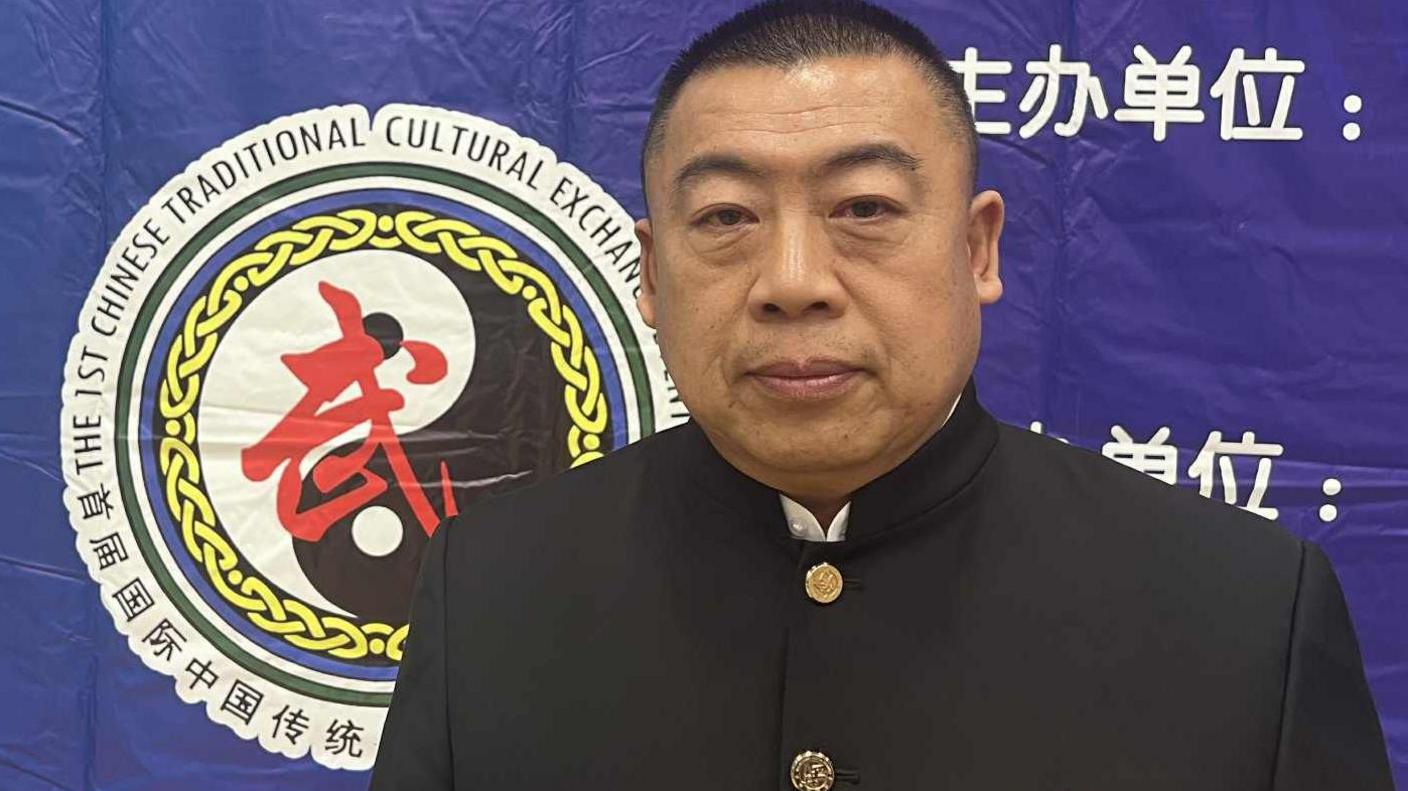
Grand Master Zhu Chang Hai
The man himself, who has lived in Northern Ireland for 26 years, said Tai Chi has been part of Chinese culture for hundreds of years.
He comes from Shenyang in China's north east province, which Zhu is proud to say is a sister city to Belfast.
He has been involved in martial arts since he was seven, learning many different forms and winning national and provincial championships in both hands and weapons.
Now he is an international 8th Duan master of traditional Chinese martial arts and Qigong, which is one of the highest attainable ranks.
He told BBC News NI that martial arts and Chinese medicine are interconnected.
"It's all about health to make the body stronger, and energy stronger too," he added.
'Sometimes you need to take a step back'
Among those at the event was Deputy Lord Mayor of Belfast Paul Doherty who said he was now thinking about taking up Tai Chi and some of the activities demonstrated.
"We lead very hectic lives, including myself, and sometimes you need to take a step back and think about our own health, and our own wellbeing, our own body and minds" he said.
Doherty said that many in our own community are absorbed in technology and a busy life, and thinks Tai Chi is a good way to help people to reflect.
"Many in the Chinese community create fantastic events like this which I'm delighted to be a part of, sharing cultures, food, music. So many fantastic things," he said.
What is Tai Chi?
Tai Chi is a variety of gentle movements, helping with balance co-ordination and general wellbeing
It combines deep breathing and relaxation with flowing movements
Studies have shown that it helps people aged 65 and over to reduce stress, improve posture, balance and mobility and increase leg muscle strength, and some research has also shown it can reduce the risk of falls
Related topics
- Published25 October 2023
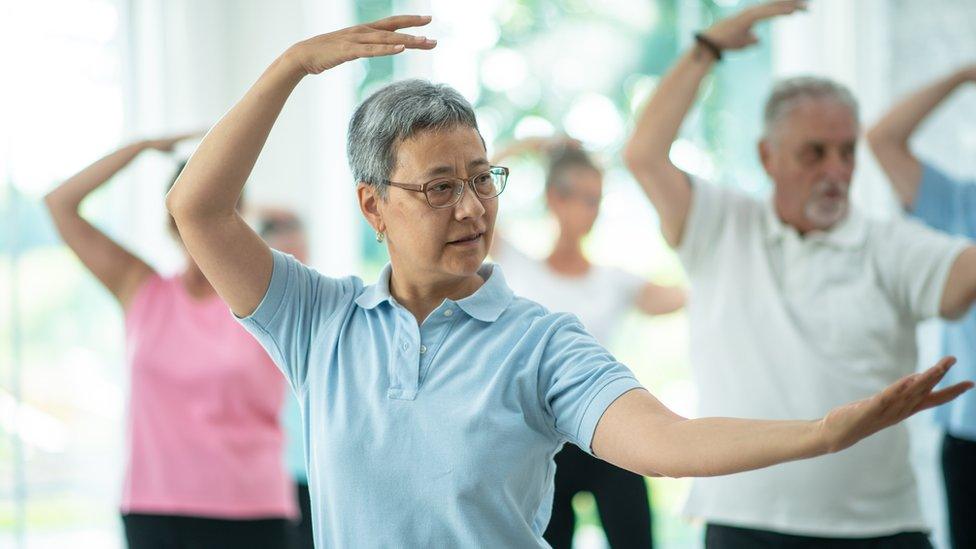
- Published22 March 2018
